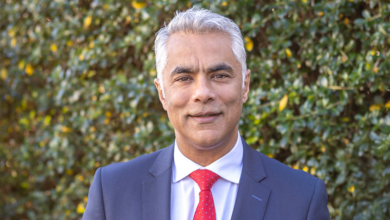More diversity needed in public appointments
 John Keanie, Commissioner for Public Appointments for Northern Ireland, says diversity on the boards of public bodies has not increased since the Good Friday Agreement. Government policy and action is needed and is long overdue.
John Keanie, Commissioner for Public Appointments for Northern Ireland, says diversity on the boards of public bodies has not increased since the Good Friday Agreement. Government policy and action is needed and is long overdue.
I was asked, in December, to give evidence to the Northern Ireland Assembly All Party Working Group on implementation of United Nations Security Council Resolution 1325 (UNSCR 1325), regarding women in decision-making in Northern Ireland since the Good Friday Agreement. I began with the fact that in 1998, 35 per cent of public board members here were women and in 2012 the figure was 33 per cent.
The statistics, on women and other under-represented groupings are not improving. People under 30 years of age, people with a disability and people from ethnic minority communities are rarely appointed. Year after year, each of these categories makes up only one or two per cent of board membership.
After fifteen years, it is more and more difficult for the public to believe that UNSCR 1325 and Section 75 of the Northern Ireland Act, designed to ensure “mainstreaming of equality of opportunity”, are being taken seriously by the policy-makers in public appointments.
Additionally, leaders in business and the third sector are vociferous in telling me that many of their people will not apply for public appointments because “they are clearly not for them” and “they are largely for men with a public sector background”. Whether or not this is an accurate analysis, it is a widespread belief, damaging to the image of boards, despite their good work.
Public bodies play a major role in society. They deliver vital services in health, education, policing and justice, housing and a wide range of social, economic, cultural and environmental areas, and are accountable for vast sums of public money. People want to be involved, to serve, to be part of the process of ‘participative democracy’. We can move those aspirations from rhetoric to reality only if we apply ourselves properly to the task.
Boards are missing out on skills, knowledge and perspectives that exist throughout the community. Recent research shows that this is not conducive to optimal performance. It is also unfair to people who wish to serve and helps generate a largely undeserved bad reputation for public appointments.
That view is shared increasingly in communities and governments around the world, in a growing body of research and programmes of action. We must not be left behind in this work.
But first we must give the proper degree of priority to the matter. There is political and administrative support for change, but that alone is not enough. We must turn good intentions into focussed effort.
As things stand, the required improvements will not happen. Despite the efforts of some individual departments, the fact is that without an overall policy commitment, coupled with plans of action and targets, that are publically articulated, monitored and reported on regularly, the work of departments is destined to remain fragmented and uncoordinated.
 I have produced a report, ‘Under-representation and Lack of Diversity in Public Appointments in Northern Ireland’, designed to raise the profile of this important issue to where it belongs and stimulate development of policy and action by government.
I have produced a report, ‘Under-representation and Lack of Diversity in Public Appointments in Northern Ireland’, designed to raise the profile of this important issue to where it belongs and stimulate development of policy and action by government.
It is now for government to act. I look forward, with my team, to assisting in that process.
The report is now available at www.publicappointmentsni.org





